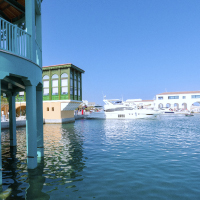
BVI – Portfolio fund and Management Company
The BVI Mutual Funds Act 1996 defines a mutual fund as “…an organization which collects and pools investor funds for the purpose of collective investment, and issues shares that entitle the holder to receive on demand or within a specified period after demand an amount computed by reference to the value of a proportionate interest in the whole or in a part of the net assets of the fund.
There are three main types of funds as defined in the act:
- Public Funds
- Private Funds
- Professional Funds
Lets look briefly at each one.
Public Funds
The BVI Mutual Funds Act 1996 defines a public fund as:any mutual fund which is not a private fund or a professional fund”, it offers investment shares to the public and therefore requires more regulation that then other types of fund. They need to be registered, publish a prospectus that provides “full and accurate disclosure of all such information as investors would reasonably require and expect to find for the purpose of making an informed investment decision”, produce and distribute audited financial statements.
Private Funds
The BVI Mutual Funds Act 1996 defines a private fund as: “a mutual fund which by its constitutional documents has restricted the maximum number of its investors to fifty, or which has specified that all invitations to subscribe for the funds’ shares shall be made on a private basis”.
Professional Fund
A professional fund carries the same definition as the mutual fund above, the shares are only available to professional investors and the initial investment is not less than one hundred thousand US dollars or its equivalent. A professional investor is someone whose business involves investment in funds similar to that of the fund itself, or someone who has a declared net worth of one million US dollars and has agreed to be treated as a professional investor. Basically it is someone who knows what he is doing and has experience in that.
Structure of Offshore Mutual Funds
Four main principles govern structure of mutual funds:
- Nature of underling investments in which fund will specialize
- How fund will market its shares
- Way in which investors earn their returns
- Way in which funds manager and others earn their fees (sponsor, investment manager, administrator, custodian).
Registering a Mutual Fund in the BVI
Registering can take from a month to six weeks assuming there is a clear investment strategy in place. There needs to be:
- preparation of investment plan
- decided structure
- prospectus drafting
- mutual fund charter drafting
- agreements with professionals drafting
- appointment of bankers, custodian and auditors
- formation of fund equity
- regulatory filings and approvals
- distribution and marketing of the prospectus.
If the client has a prospectus that has been used before, it could take up to 2 weeks. A bank account may take a couple of weeks to open, depending again on relationships, and the memorandum and articles of association (or other documents) can be completed within a couple of weeks once the prospectus is nearly in its final form. In total, a period ranging between 6 weeks and two months should be sufficient.
The fund can be administered or managed anywhere in the world but there must be a registered agent and office in the BVI, and as mentioned above, a public fund must have accounting records available for inspection in the BVI.
BVI Mutual fund shares can be offered anywhere in the world but advice is needed as to the securities laws of each jurisdiction in which shares are to be offered.
At AGP we can provide you with all the legal and structure services required for your fund creation in order to streamline and simplify the process. For company formation at the BVI please refer at Company Formation section of this website.













